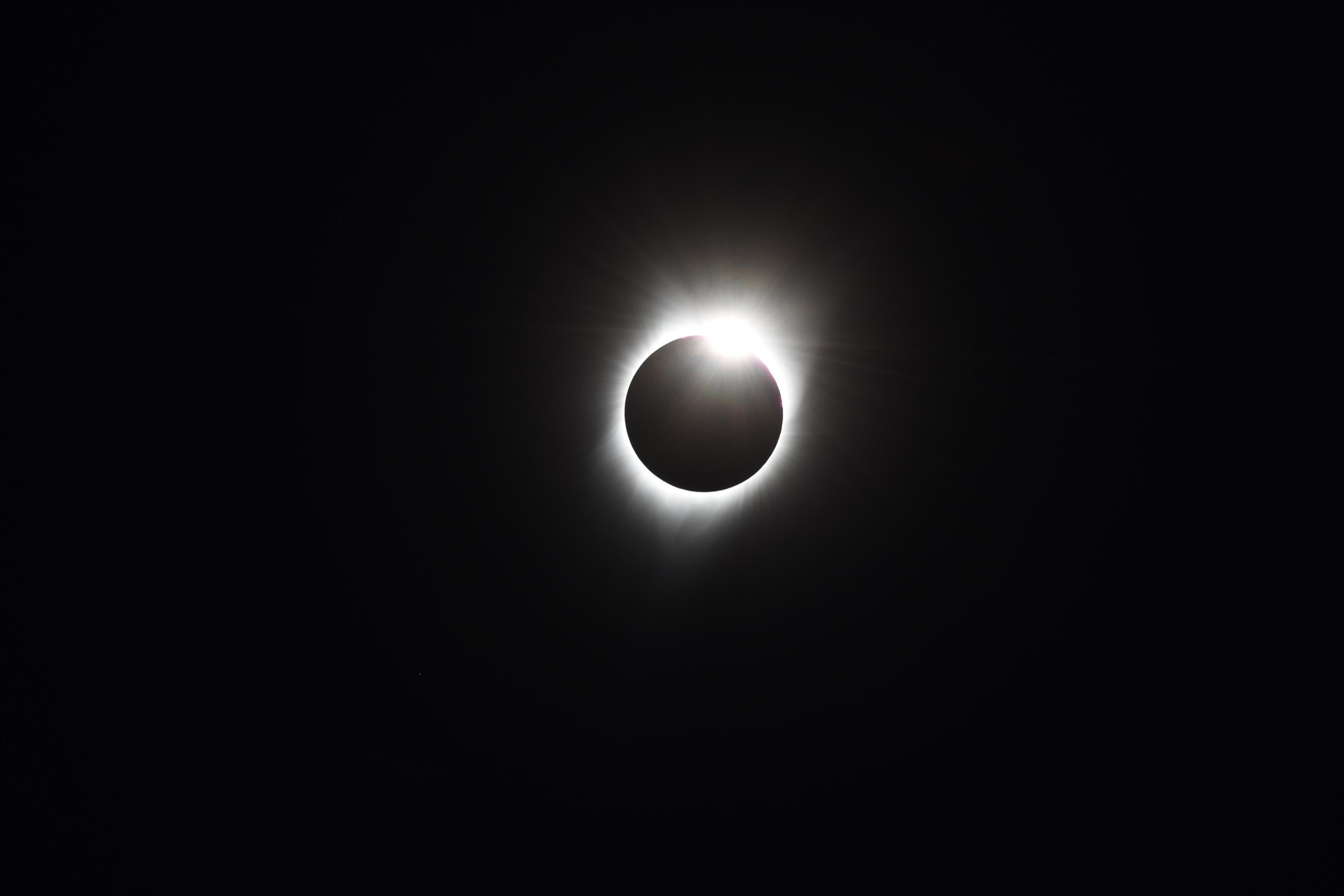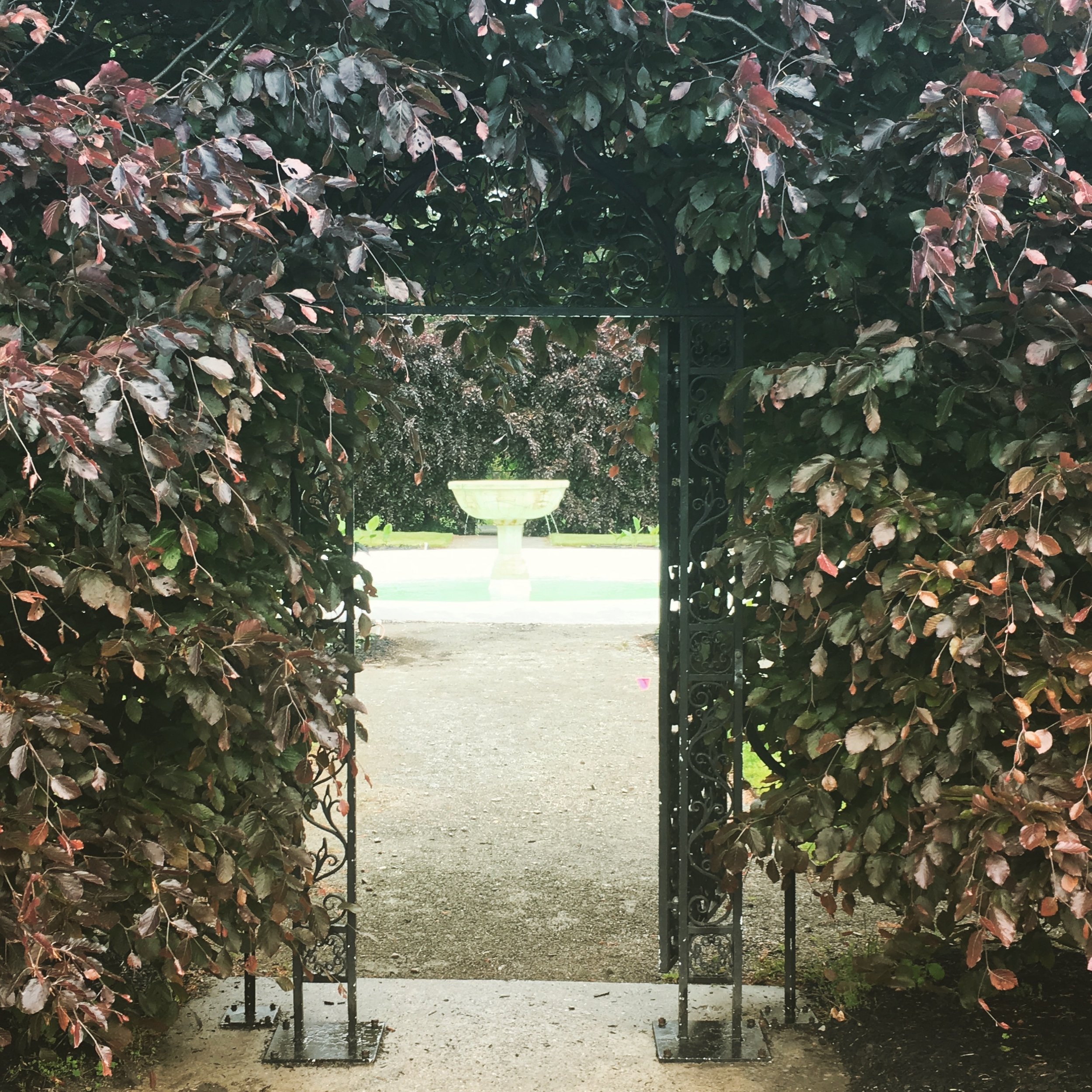“It began with no ado. Odd that such a well-advertised public event should have no starting gun, no overture, no introductory speaker. I should have known right then that I was out of my depth. Without pause or preamble, silent as orbits, a piece of the sun went away. We looked at it through welders’ goggles. A piece of the sun was missing; in its place we saw empty sky.”
I have run into a lot of despair this week. At times my own. But also, others. People who hold others’ difficult stories. Who witness others’ suffering. People who don’t know how to support learning the way they want to. People who are ill or injured. It’s a despair that holds more than despair—it also holds care. It holds concern and responsibility. It holds a fierce persistence. And maybe, maybe, it holds the tiniest bit of hope. Hope that sometimes showed up as possibility, but often looked more like exhaustion and the willingness to surrender the old thing and let something else emerge.
In my imagination I picture despair not so much like night, but more like a total solar eclipse. Where the sun had been, it is suddenly gone. The world has gone dark. The color fades. Despair isn’t like night because night is supposed to be dark. But in an eclipse, there is darkness where there is supposed to be light. The loss of the sun feels total and permanent in that moment.
And maybe despair feels more like an eclipse than some long, dark night because I have lived through both: despair and eclipse. And I have gotten to see the totality of darkness, but also how it eventually passes. Neither remains permanent—no matter how permanent they feel at the time.
A solar eclipse happens when the sun, the moon, and the earth completely align. The moon passes between the earth and the sun, blocking the sun’s light completely. The sun will completely darken, but sometimes, if the weather is right, you can see the sun’s corona—the outside edge of the sun—something that’s often invisible. There’s a way that an eclipse is an integration of sorts: it only happens when things come into contact with one another. When too many truths collide. When you can see the problem all too clearly and the solutions seem impossibly far away.
In 2017 there was solar eclipse in August. Everyone in my neighborhood was out, including a family with kids. They were all in their driveway holding colored boxes—when I looked closely, I could see that they were cereal boxes.
The youngest boy in the family, maybe 8 or 9, came walking over to me, seeing me standing in my driveway without any equipment—and he handed me a Frosted Flakes box that had holes that had been cut and covered with foil. And one of the holes had a small hole. He pointed at where I could look through and said I could keep it—they had made a lot. So I got to peer at the eclipse safely, with Tony the Tiger and an 8 year old boy as companions.
The way to safely view an eclipse is through goggles or a tiny hole. You need protection so you aren’t hurt. And holding despair may be the same. You need the ability to take in just a small view of something so big. The things that happen that bring forth despair in us are things that are not only big--they are what makes us human. Despair is the ultimate experience of being mortal—of knowing that in that moment our biggest power is the power to witness what is true, even if the truth is hard, or awful or unbearable. Witnessing despair doesn’t mean inaction. It just means, not yet.
I now have enough practice with despair to know that I get stuck when I think it’s my job to remove the darkness—as if I thought it was my job to move the moon so the sun could shine. I forget that it’s my job to witness—to see what is blocking my sun, our sun, the light in the world. I forget it’s the smallest voice, or the smallest parts of ourselves that offer the solutions—the cereal box, carefully taped—to witness the process, and see whatever we are capable of taking in at that time. To remember that the sun will emerge again, and at the edges of despair and darkness, sometimes things become more clear.
©2023 Gretchen L. Schmelzer, PhD




